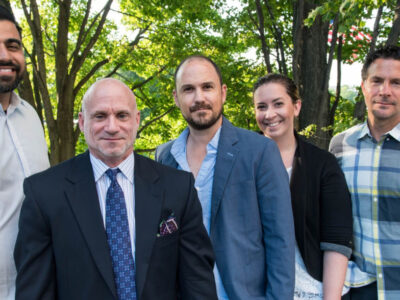Your goal may be to stop using alcohol or substances completely (abstinence). Or it may be to learn whether moderation, control and social use (harm reduction) is appropriate for you. Either way, finding a professional who is knowledgeable in addiction treatment and the underlying psychological factors of mental health can be a daunting task.
Whether you are ready to choose abstinence or want to explore harm reduction (techniques for people who choose to drink or use drugs or alcohol) – finding the right support is critical. It is crucial that the person treating you can provide individualized and personalized counseling that will help you to explore the role that drugs or alcohol might play in your life. Addiction and drug and alcohol use can be like an iceberg. Only 1/10th floats above the water and can be easily seen. The rest lies hidden and can be the connection to an underlying depression, anxiety, stress or self esteem issue. If we want to change our behavior we have to be willing to take a look at this part of the equation as well. Acknowledging that you need help is never easy, but it’s one of the best things we can do for ourselves.
Finding the right addiction counselor is as important as making the decision to make changes in our lives. First, before determining whether the addiction therapist is expert enough you have to decide what type of counselor you would like to work with. Addiction counseling may involve working with a combination of professionals and the trifecta or standard would be: 1) individual therapy, 2) group therapy and 3) support meetings. While that is a lot to ask of an individual seeking help in the beginning, the best place to start would be to meet with an addiction therapist in an individualized setting for a complete evaluation. There are several types of counselors or “psychotherapists” with the necessary and sufficient experience to get you on your way. It is important to know the difference between these treatment providers.
It is common to begin a search for addiction treatment by consulting an “addiction psychiatrist” or an “addiction psychologist.” In actuality, these are two very different kinds of professionals. Knowing the difference is essential.
Furthermore, the professions of “psychotherapist,” “social worker” and “counselor” all have different specialties and their specialty of treatment can vary considerably. Their credentials are much less important compared to their experience and the connection that you can establish with them. Most counselors would agree that the single most curative factor in the psychotherapeutic relationship is the rapport that develops between therapist and client. So while you’re looking for someone you can afford you are also looking for someone with whom you can connect.
“Addiction psychiatrist” is a layperson’s term to describe a medical doctor who is also a psychiatrist who specializes in treating patients with addictive and mental health disorders primarily with medicines like antidepressants, antipsychotics, in order to treat underlying mental illnesses and ”comorbid” disorders.
While there are many psychiatrists who don’t prescribe medications and focus primarily on therapy instead, most psychiatrists manage medications and work closely with psychologists and other counselors who will provide the actual talk therapy treatment. Initial psychiatric apts can be very expensive but psychiatric appointments following an evaluation tend to be short, about 20 to 25 minute med checks, and are much less cost prohibitive. Psychiatrists these days are mostly concerned with how a patient is adjusting to a drug regimen and managing the side effects, and gauging the effectiveness of that drug treatment regimen.
The best addiction psychiatrists are extremely conservative with prescribing meds and should even tell you that they consider themselves to be conservative. Many we know will tell us that they are “paid by patients not to prescribe!” Addiction psychiatrists essentially have special training in prescribing medications to help individuals who are struggling with their substance use. It is really important to work with an addiction psychiatrist and not just a general psychiatrist when you are trying to determine the nature of your relationship with drugs and alcohol and considering making behavioral changes. An addiction psychiatrist can prescribe medications to help you detox or withdrawal from drug and alcohol use and he or she can also prescribe medications to help you with cravings.
An “addiction psychologist,” on the other hand, is a doctor but not a medical doctor. Addiction psychologists spend approximately 5-7 years post college, receiving the most training of any addiction treating professionals. They are trained mental health professionals who can help you explore the role that drug and alcohol use and addiction play in your life. An addiction psychologist can help you become more aware of your thoughts, feelings and behaviors and teach you different ways of dealing with problems through therapeutic approaches like Cognitive Behavioral Therapies (CBT), Mindfulness Based Stress Reduction (MBSR), Dialectical Behavior Therapy (DBT) Twelve Step Facilitation Treatment and Community Reinforcement and Family Training (CRAFT). Addiction psychology and Licensed Professional Counselors who specialize in addiction are professionals who will let you talk your way through a problem and help you get to the heart of the issue so you can make the necessary changes that will improve your life for the long-haul. Typical appointments with addiction psychologists and comparable licensed professional counselors specializing in addiction are about 50 to 55 minutes and are usually weekly.
There are other types of addiction counselors in addition to psychologists who might be helpful for you. Licensed Professional Counselors with specialty in addiction training can have considerable experience as long as they have worked in drug and alcohol settings, acquired additional addiction certification or identify as being in recovery themselves. Social Workers may also be a good fit for you. Social Workers may have their masters or doctorate while Licensed Professional Counselors may only have masters level education, both are trained in mental health issues to varying degrees. Social Workers are trained in particular on obtaining the best social agency support services and they tend to take a social and networking approach to the treatment of mental health disorders which is essential for any recovery from addictive disorders.
“Psychotherapist” is a term for a treatment professional who may have any of the above degrees or none at all. A psychotherapist is sometimes a catch-all phrase for someone who practices counseling but they may or may not be adequately trained according to the standards of other professional degrees or certificates. For example a psychiatrist or psychologist may describe themselves as a psychotherapist but so too can a recovery coach or Joe Shmoe because he’s been a “spiritual coach” ever since he was electrocuted while trying to repair his Prius. That said, many psychotherapist counselors do receive adequate training but it is important that you vet their experience, training and credentials as you should with any other counselor.
Certified Addiction Counselors and Certified Alcohol and Drug Counselors are just a few of the titles given to professionals who are therapists but not at the educational or academic level of psychologists or folks who also have licensed professional counseling degrees as well. These titles vary slightly according to the state board guidelines which can be different from state to state. They may be no less qualified to treat you but it is important to see someone who is licensed in their professional field. Ideally, a clinician that you see would not just be qualified as an addiction counselor but they would also be qualified, educated and licensed as a mental health professional as well.
Now that you know the differences between addiction psychiatrists, addiction psychologists, and licensed professional counselors and other mental health practitioners who can also specialize in treating addiction, we’ll discuss how to find the right addiction therapist for you personally. There are two common ways to find a psychologist or licensed professional counselor: 1) research local addiction professionals online, or 2) identify an addiction therapist who is recommended to you by a another professional or friend or family member. Both are perfectly legitimate ways to begin your search for the professional who is the best match for you.
Once you identified some good clinicians, you can follow these steps to determine if they are competent, credible and a good fit for you. First and foremost, check their credentials to see if they are who they say they are. Recently there has been some deception in search engine advertising where treatment centers have found ways to take over professional’s contact numbers and rather than calling your local treatment provider somehow you get diverted to a shady addiction rehab in Florida. So when talking to an addiction treatment consultant or the office manager, if they are providing you advice that seems clinical, definitely ask them what their credentials are. They should not be offended, in fact they should be compassionate and probably say to you, “Good question.” Make sure that the person that you go to see has the associated degree of the professional discipline that you personally are looking for as discussed above. The professional that you go to should be licensed and their license should be up to date and clearly indicated on their website or profile listing.
Second, whether you want to see an addiction psychologist, licensed professional counselor, psychotherapist or psychiatrist you should determine what expertise they have in the field of addiction. This can be challenging because across disciplines there is no standardized way of determining one’s expertise in substance use disorders. For example, while psychiatrists can be board certified in addiction medicine, addiction psychologists might obtain their proficiency by having 1) additional certification as a certified alcohol and drug counselor 2) being a member of the American Psychological Association Division 50 Society of Addiction Psychology or 3) having conducted research and published articles on addiction. For that matter, addiction counselors may have a certification through a state board yet they may lack the background and training that a psychologist or more experienced licensed professional counselor receives in mental health issues. This is important because half of all individuals who are diagnosed with a lifetime prevalence of addiction will also be diagnosed with a lifetime prevalence of another comorbid mental health diagnosis. One might not want to see a psychiatrist who specializes in medication management and may not have as much training and experience in the various treatments involving the talk therapies which are the cornerstone to addiction recovery unless medication is immediately important and only in conjunction with seeing a talk therapist as well.
Third, in this day and age, check their reviews online. Of course there are still excellent therapists who don’t yet have reviews on line maybe because they haven’t had an on-line presence or because it’s just not ethical to ask clients for reviews. Many psychotherapists will have other colleagues write reviews for them which is a helpful way of getting recommendations and opinions for consumer clients. It is always possible that one bad review can affect someone’s listing so look carefully at all the reviews to be fair and recognize that it is mostly unethical to respond to a bad review because it breaks the client’s confidentiality inadvertently by acknowledging publicly that the client was seen in the practice.
Fourth, review their website and other sites where their practice might be listed to see that they offer “evidence-based” or “empirical treatment recognizing that by now these buzzwords have quite frankly become somewhat obsolete as they have been co opted by marketers. You do want to be sure that your therapist at least knows about the most up to date evidence-based treatment approaches. Ask him what treatment he uses that is evidenced-based or ask him his opinion on something you’ve learned about like controlled drinking, community reinforcement and family training (CRAFT) and Relapse Prevention (RP).
Fifth, call and have a brief conversation over the phone to see if you feel some sort of connection to this therapist. This may be a feeling of confidence in them or an inexplicable connection with that person but in either case feeling comfortable with your addiction therapist is crucial. It is completely appropriate to tell them you are shopping for a therapist and that you’d like to speak on the phone to ask some questions or let them know what your goals are if you know them, to see if it even makes sense to set up an appointment.
Sixth, make an appointment where you meet the person face-to face and see if your instinct about them being a possible fit for you is accurate. It is also reasonable to meet a couple of times before you decide whether to commit to working with them while you develop an initial treatment plan together. Remember, most importantly you are looking for someone that you connect with. You and they should both be able to believe that they can help you. You are looking for someone you can afford, someone with whom you can feel comfortable and someone who you believe can help you.
If you think you found a therapist but they end up not being the right match for you, do not give up hope. First, it may be important to explain very clearly to your counselor what it is that you feel you are not getting from them. On the Good Therapy website, we have a similar article where Dr Frank says, “Oftentimes, the difficult experience you are having with the therapist is related to the reason why you are in therapy to begin with. In other words, the conflict or problems that you are having with your therapist are the sort of problems you have in other relationships and could be driving addictive or compulsive behaviors and now you have an opportunity to work through those issues with your therapist who is trained to help you see your role in the relationship and in other more important relationships. This is a wonderful opportunity to learn about yourself.” If a psychotherapist avoids this sort of dialogue they will not be able to be helpful to you. Sometimes the match is just not right and you have to contact a different therapist.
As treatment for the substance use disorders is a complicated field, it is essential that your addiction counselor or therapist has a solid background in mental health and not just expertise in addiction. Since well documented research reveals that 50% of those with an addictive disorder in their lifetime will also meet the criteria for another mental health disorder, to be sure, these “comorbid” conditions are interrelated and may fuel each other in a transactional way. This is why it is so important that your therapist be an expert in both addiction and mental health. When you seek help for a drug or alcohol problem you may also experience issues such as anxiety, stress, trauma, attention, concentration and relationship problems. Addiction therapists who are non-licensed such as recovery coaches and interventionists can have an important role but only when mental health professionals who are licensed are supervising and coordinating the treatment.
When you find an addiction counselor who is a good match for you whether a psychologist, psychiatrist or licensed professional counselor and you begin to work on your addiction issues, most people quickly feel like a weight has been lifted and there is hope. Even though most people considering stopping or reducing their drug or alcohol use can’t imagine their lives without the use of alcohol or drugs, most recovering individuals report vast improvement fairly quickly. One of the wonderful things about addiction treatment is that over the years we have learned that recovery from compulsive and addictive behaviors is not about just giving up something. It’s not just learning how to say no and grieving the loss of friends partying and fun. Addiction recovery is more about what we add into our lives. It’s more about learning how to have fun, finding new ways of relating to friends, new friendships, hobbies meaning and purpose. What makes us tick and what makes us happy? These are the amazing questions and answers that come from grappling with a very real illness and this is why some people say my worst days in my recovery have been better than my best day using drugs and alcohol.




